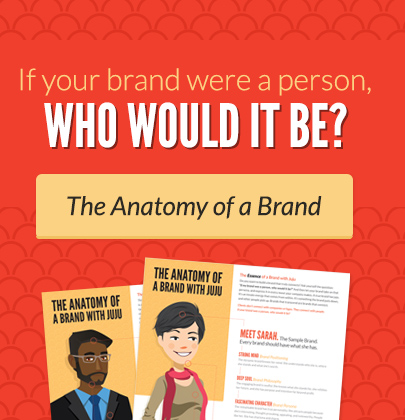Motive is a powerful thing.
It’s even more powerful when it’s pulled from the shadows, clearly articulated, and shared with your customers.
We’re taught to believe that motives lurk behind the scenes and hide in our subconscious minds. Movies and media stories are driven by secret or slimy motives for crimes, wayward political careers, and unintentional moments of truth that expose liars and evil-doers.
Motives, my friend, have gotten a terribly unfair bad rap.
When it comes to building a brand, a following, a customer base, or a reputation, your motive is your most potent and effective tool for differentiation.
Small business owners and entrepreneurs so often find themselves in a crippling space of equivalence. We look and feel just like everyone else.
Are you a coach among tens of thousands of coaches? A graphic designer in a never-ending list of design studio choices? A cookie company with access to the same butter, flour, raisins, and cranberries available to every other bakery in the world?
I had the beautiful pleasure recently to interview Mike Weisman, Founder of The Values Institute – a research and consulting practice solely focused on values-based corporate culture – and he had this to say about businesses that DON’T differentiate through motive:
Because there’s so much choice, and we’re so overly commoditized in every category, if you’re simply trying to distinguish yourself based on products and services alone, you will be capsized in the sea of sameness.
Capsized in the sea of sameness. Holy shit. What a horrible way to go.
But here’s what I love about small businesses and start-ups (versus the corporate monoliths Mike Weisman deals with): our motives are still easy to access. We haven’t grown too big. We’re not bogged down in committee meetings, shareholders, boards of directors, and annual reporting requirements. It’s you and me at the top, baby.
And I don’t know about you, but I am not short on beliefs. (Girlfriend has some opinions.)
So reach into your brand – into your business – and pull out these things, and build real relationships with your customers over them, before it’s too late:
The driving reason you do what you do.
The ways in which you hope to change the world.
Your vision for the way things ought to be.
Your rationale for jumping out of bed every morning.
The sweet and shiny desires that drove you the day you set up shop.
Your beliefs about the way your business, your employees, and your partners should behave.
How you can build long-term, trust-based relationships with your customers just like the ones you have in “real life.”
People don’t connect with companies. They connect with ideals. With principles. With worldviews. With like-minded individuals.
People connect with passion.
And frankly, if you don’t believe in something, it’s going to be awfully hard to get people to believe in your business.
So try it right now.
Tell me, in the comments below, something you and your business believe in.
And when you do, you’ll tell me (and everyone else) why I should believe in you.
P.S. Tomorrow, I’m going to talk about how you share your beliefs with our customers, your prospects, and the world. I’m gonna show you how to make believers out of ‘em. Meet me here… on the blog.




